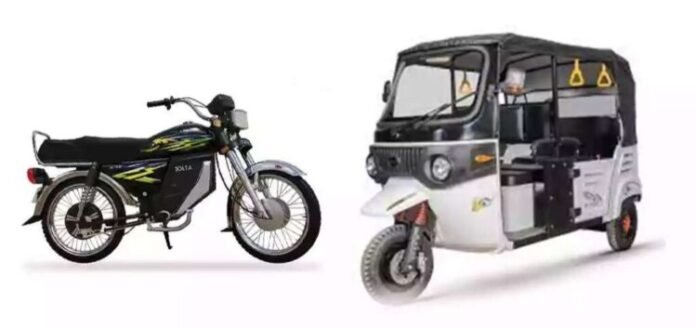ISLAMABAD: In a bold move to jump-start its clean mobility transformation, Pakistan has partnered with the International Finance Corporation (IFC) to boost investment in electric two- and three-wheelers—vehicles that dominate the country’s roads and could be pivotal in slashing emissions.
The Ministry of Industries and Production signed a cooperation agreement with IFC, launching a major advisory initiative aimed at creating a business-friendly environment for the electric vehicle (EV) sector. The focus will be on reforming policy, regulatory, and safety standards across the entire value chain of electric two- and three-wheelers (e-2/3Ws), the most common form of transport for millions of Pakistanis.
The project comes at a critical time. With more than 23 million two- and three-wheelers on Pakistan’s roads, electrifying this segment is considered the fastest route to achieving real climate impact, lowering urban air pollution, and reducing dependence on imported fossil fuels.
Under the partnership, IFC will provide technical support and collaborate with key regulators including the Engineering Development Board (EDB), National Energy Efficiency and Conservation Authority (NEECA), and Pakistan Standards and Quality Control Authority (PSQCA). The aim is to build institutional capacity, break regulatory logjams, and lay the groundwork for sustainable EV market growth.
Speaking at the signing ceremony, Haroon Akhtar Khan, Special Assistant to the Prime Minister on Industries and Production, called for urgent action to remove policy bottlenecks. “Without an enabling framework, the national targets for electric vehicle adoption will remain on paper,” he warned. “Prioritizing electric two- and three-wheelers, along with buses, is essential given their mass usage and economic relevance.”
Khan highlighted the need for clearer policies, better coordination, and cost-cutting through localized production and aggregated procurement. He also stressed the importance of unlocking affordable financing by deploying risk-sharing tools.
Echoing the urgency, Secretary for Industries and Production, Saif Anjum, said the collaboration with IFC will be key to opening investment channels for Pakistan’s EV ecosystem. “This initiative will help unlock large-scale public and private financing to support a cleaner transport future,” he said.
IFC’s Country Manager for Pakistan and Afghanistan, Zeeshan Sheikh, noted that EVs currently make up less than one percent of the transport fleet in Pakistan—a number the organization is determined to help change. “This partnership supports Pakistan’s broader climate and energy efficiency goals and aligns with the World Bank Group’s 10-year Country Partnership Framework,” he said.
The initiative also reinforces the National Electric Vehicle Policy (NEVP) 2019, which sets an ambitious target: 30 percent of all new vehicle sales should be electric by 2030. Alongside regulatory reforms, the project will support the rollout of critical infrastructure, including charging stations and testing labs.
The program is funded through the Climate Investment Funds for Pakistan (CIFPAK), a blended climate finance facility managed by IFC in collaboration with the UK’s Foreign, Commonwealth & Development Office.
With global momentum shifting toward sustainable transport, Pakistan’s move to electrify its vast fleet of two- and three-wheelers may well be the game-changing push needed to place the country on a cleaner, greener path.




